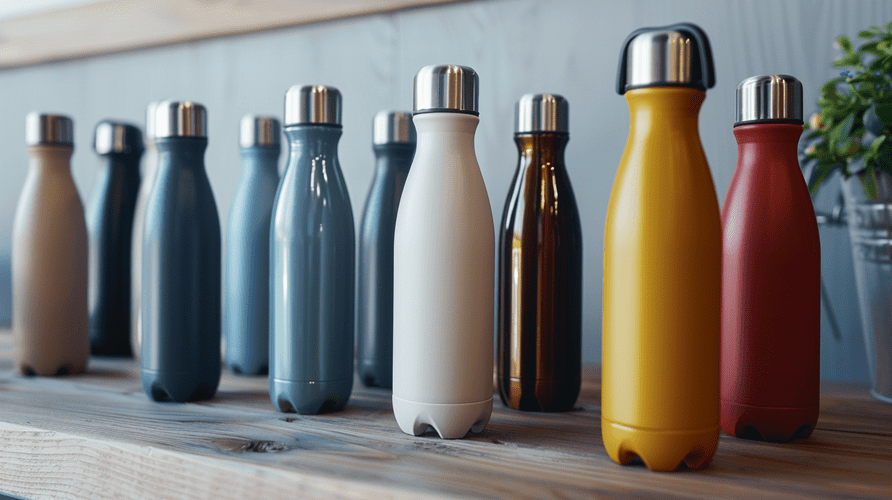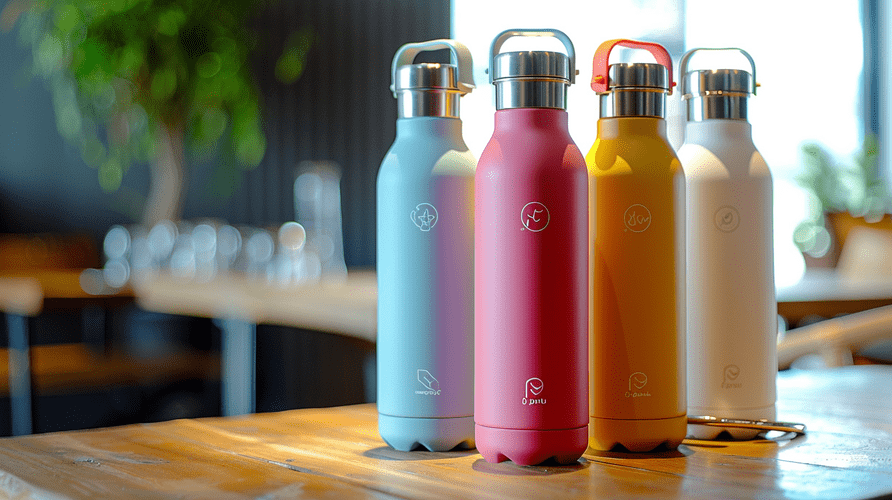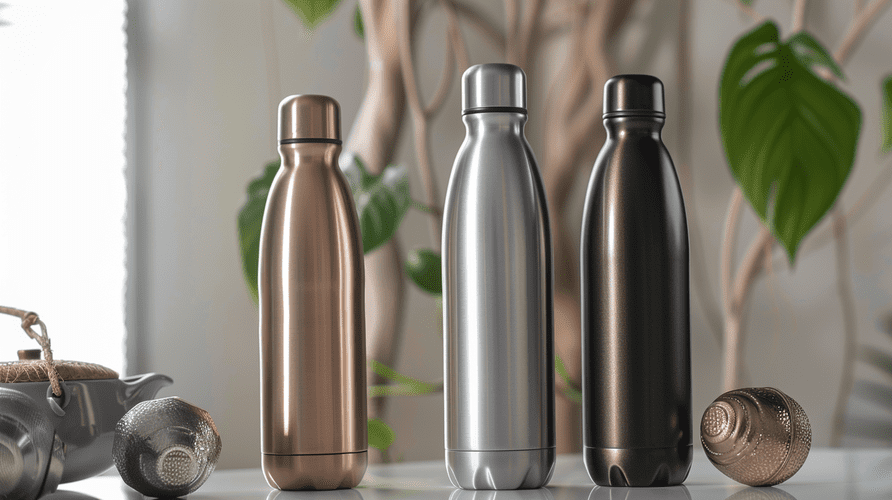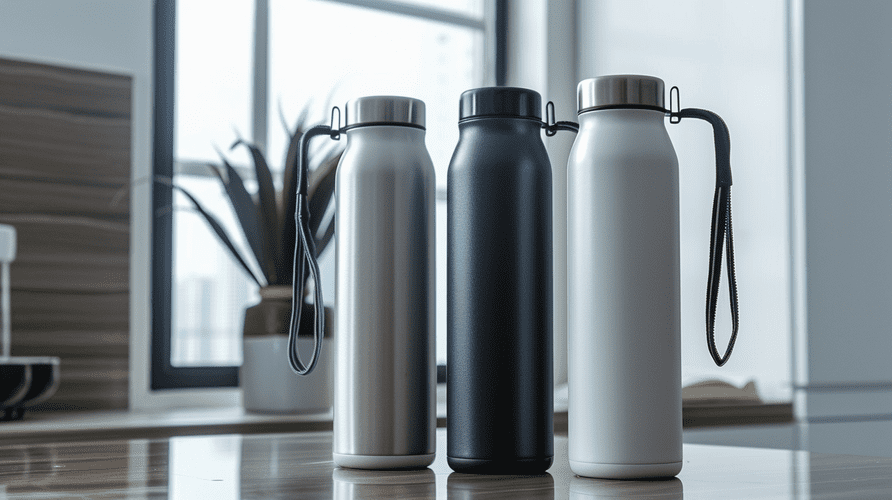Frustrated with stainless steel bottles that make drinks taste metallic? You need a solution that keeps beverages pure and your customers happy.
Purist bottles offer a unique solution: a silica-based inner lining that prevents metallic taste and odor retention, ensuring drinks taste exactly as intended. This technology could be a game-changer for your product line.

As a B2B professional, you're always looking for products with a clear edge. Purist's technology offers a tangible benefit, but understanding the full picture – from materials to manufacturing – is key to a smart investment. This guide explores if Purist bottles are the right fit for your business.
What is the best brand of stainless steel water bottles?
Tired of sifting through countless "best" stainless steel bottle claims? You need a brand that truly resonates with your specific market and quality demands.
The "best" brand for you, Mark, as a company owner and procurement officer, is one that aligns with your niche, quality standards, and supply chain needs. Consider factors like material, technology, and customization.

For B2B clients like brand owners, importers, and wholesalers, including someone like Mark who is sensitive to quality but also seeks competitive pricing, the "best" brand of stainless steel water bottle isn't a one-size-fits-all answer. It’s the brand that best fits your specific business needs. While many brands offer good quality, some, like Purist, offer unique selling propositions. I've learned that focusing on a specific customer pain point, like metallic taste, can be a strong differentiator. Purist tackles this with a special inner lining. Think about what matters most to your customers. Is it taste, temperature retention, durability, or a specific aesthetic? For instance, some brands might focus on ruggedness for an outdoor market, while others might prioritize sleek design for a corporate gifting audience. As a B2B buyer, you also need to consider factors like a manufacturer's reliability, their ability to customize (logo, color), minimum order quantities (MOQs), and, of course, pricing. Researching brands that cater to these specific B2B requirements will lead you to your best brand.
Defining "Best" for B2B
| Feature | Importance for B2B Buyers (like Mark) | Why it Matters |
|---|---|---|
| Material Quality | High | Durability, safety, customer satisfaction, brand reputation. |
| Unique Tech | Medium to High | Differentiation in the market, potential for premium pricing. |
| Customization | High | Branding opportunities, meeting specific client demands. |
| MOQs | Medium | Inventory management, cash flow. |
| Price | High | Profit margins, competitiveness in the Canadian market. |
| Reliability | High | Consistent supply, meeting peak season demands, avoiding shipment delays. |
| Certifications | High | Ensuring product safety, meeting import regulations, building trust. |
Are Purist water bottles safe?
Worried about product safety and potential recalls? You need assurance that the water bottles you source meet stringent international standards and won't cause issues.
Yes, Purist water bottles are generally considered safe, utilizing 316 surgical-grade stainless steel1 internally and 304 externally, with BPA-free caps and a lead-free construction. This focus on material safety is a key consideration.

As someone who, like Mark, prioritizes quality inspection and certification, the safety of the products I offer is paramount. Purist bottles address this concern directly. They typically use 316 surgical-grade stainless steel for the inner wall and 304 food-grade stainless steel for the outer wall. Both are known for their excellent corrosion resistance, which is vital for preventing any leaching of materials into the beverage. Furthermore, the caps are usually made from BPA-free plastic2, a significant factor for health-conscious consumers. Purist also explicitly states that their bottles are lead-free. This is a crucial declaration, especially when importing products into markets like America and Europe, where safety regulations are strict. The inert silica-based lining not only prevents metallic taste but also adds another layer of separation between the beverage and the metal. For B2B buyers like Mark, who need to ensure products are safe and meet customer expectations, these material choices and safety declarations are strong selling points. It helps mitigate risks associated with product liability and builds trust with end-users.
Purist Bottle Material Breakdown
| Component | Material | Safety Aspect | Benefit for B2B (like Mark) |
|---|---|---|---|
| Inner Wall | 316 Surgical-Grade Stainless Steel | High corrosion resistance, hypoallergenic. | Ensures beverage purity, meets high safety standards. |
| Outer Wall | 304 Food-Grade Stainless Steel | Durable, corrosion-resistant. | Long-lasting product, maintains appearance. |
| Inner Lining | Silica-based (glass-like finish) | Inert, prevents metallic taste, no flavor retention. | Unique selling point, addresses a common consumer complaint. |
| Cap | BPA-free plastic | Non-toxic, avoids harmful chemicals. | Meets consumer demand for safe products, reduces health concerns. |
| Overall | Lead-free | Prevents lead contamination. | Critical for regulatory compliance and consumer safety. |
Where are Purist bottles made?
Concerned about supply chain transparency and manufacturing ethics? Knowing the origin of your products is crucial for logistics, cost, and brand perception.
Some sources suggest Purist bottles are made by Specialized in California, USA, while other information indicates some Purist Collective bottles are manufactured in China. This detail impacts B2B sourcing.

For a B2B buyer like Mark, who sources from developing countries like China and Vietnam, the manufacturing location of Purist bottles is a significant factor. While some information points to Specialized in California, USA, as a maker of Purist bottles (often associated with their cycling-specific Purist Watergate bottles), other details suggest that some bottles from the Purist Collective brand are manufactured in China. This isn't uncommon in the industry; many prominent brands utilize manufacturing facilities in China due to cost efficiencies and established production capabilities. For Mark, sourcing from China is already part of his business model. The key considerations would then shift to the specific manufacturer's quality control processes, their certifications, and their ability to meet his volume and customization needs. If some Purist bottles are indeed made in China, it could potentially offer a more competitive price point. However, it also underscores the importance of due diligence in verifying factory standards and ethical practices, which I know is a priority for Mark given his focus on quality inspection. The "Made in" label can influence consumer perception, so understanding this aspect allows for better market positioning.
Impact of Manufacturing Location for B2B Buyers
| Factor | Made in USA (e.g., Specialized by Purist) | Made in China (e.g., some Purist Collective) | Considerations for Mark |
|---|---|---|---|
| Cost | Potentially Higher | Potentially Lower | Directly impacts profit margins; aligns with his preference for competitive pricing if sourced from China. |
| Logistics | Different shipping routes/times | Established shipping routes for Mark | Familiarity with Chinese logistics is an advantage. |
| Quality Control | High perceived standards | Requires thorough vetting | Mark's focus on quality inspection is crucial regardless, but perhaps more intensive for overseas manufacturing. |
| Lead Times | May vary | May vary, potential for delays | Critical for meeting peak sales seasons; a known pain point for Mark. |
| Brand Image | "Made in USA" appeal | Can be overcome with quality assurance | How this is marketed in Canada. |
| MOQs | May differ | Often flexible with Chinese manufacturers | Important for inventory and cash flow. |
Conclusion
Purist bottles offer a compelling taste-free technology and strong safety profile, making them an attractive option for B2B buyers seeking quality and differentiation.

